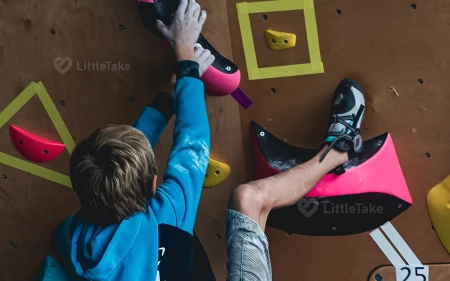
Helping Your Child Set & Achieve Goals
Teaching your child how to set and achieve goals is an essential life skill that can help build self-confidence, resilience, and a sense of accomplishment. Here are some steps you can take to guide your child in setting and achieving their goals:
1. Introduce the concept of goal setting
Start by explaining what a goal is and why it's essential to have them. Share personal examples of goals you've set for yourself and discuss the benefits of having a clear objective to work towards.
2. Help them identify their goals
Encourage your child to think about what they want to accomplish, whether it's academic, personal, or extracurricular. Help them brainstorm and identify specific, measurable, achievable, relevant, and time-bound (SMART) goals.
3. Break down the goals into smaller tasks
Help your child break down their goal into smaller, more manageable tasks. This will make the goal feel less daunting and more achievable. It also allows your child to see their progress as they complete each task.
4. Develop a plan of action
Together, create a plan of action to achieve the goal. Identify the steps needed to complete each task and establish a timeline for completion. Encourage your child to take ownership of their plan by having them contribute ideas and suggestions.
5. Offer support and encouragement
Be available to provide support and encouragement as your child works towards their goal. Celebrate their achievements, no matter how small, and offer guidance when they encounter challenges or setbacks.
6. Monitor progress and adjust the plan if needed
Regularly check in with your child to discuss their progress. If they're struggling with a particular task, offer suggestions on how to overcome obstacles and adjust the plan as needed to ensure success.
7. Teach them to learn from setbacks
Help your child understand that setbacks and failures are a natural part of the goal-setting process. Encourage them to learn from their mistakes and use these experiences as an opportunity for growth and self-improvement.
8. Encourage reflection and self-assessment
Once the goal has been achieved, encourage your child to reflect on their journey and assess their performance. Discuss what worked well, what could have been done differently, and what they've learned from the experience.
Helping your child set and achieve goals is a valuable skill that will serve them well throughout their life. By guiding them through the process, offering support and encouragement, and teaching them to learn from setbacks, you'll empower your child to take control of their own success and build a foundation for a lifetime of achievement.













